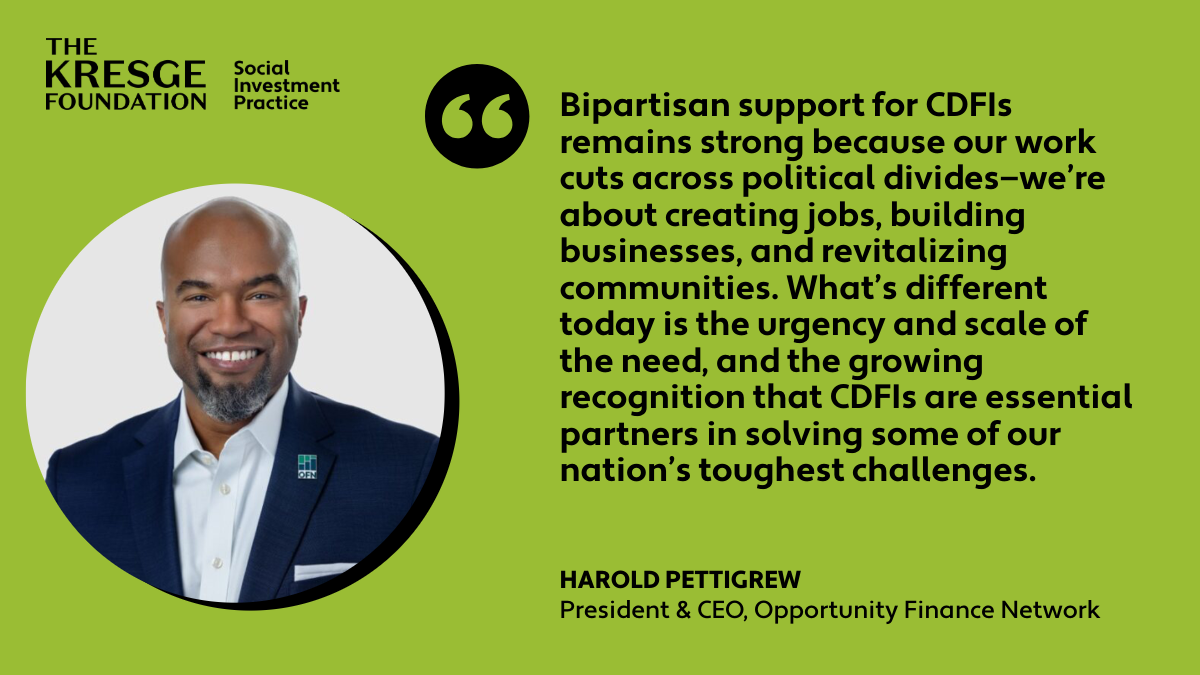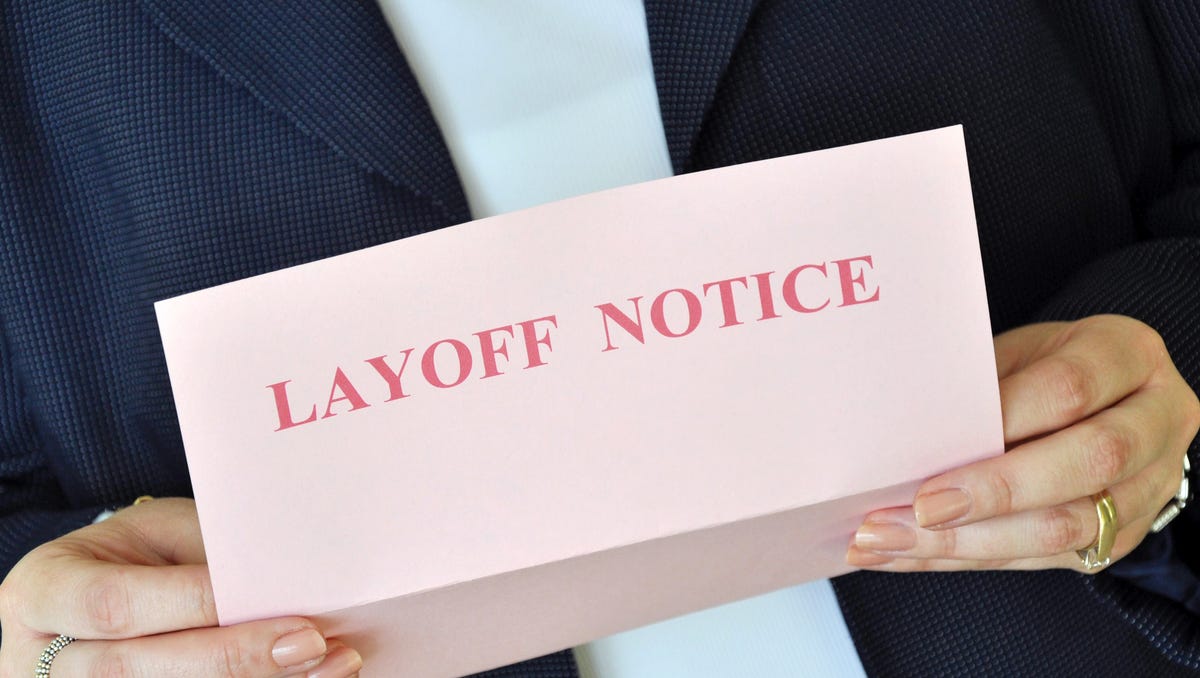Finance
How fear and panic can be assets in your finances and career – Marketplace

There’s a lot to stress about these days and our finances, of course, are no exception. Maybe you’re worried about spending this holiday season or what market fluctuations could mean for your retirement savings. Well, instead of avoiding the panic, what if we used it to our advantage?
Farnoosh Torabi is a journalist, personal finance expert and the author of the new book “A Healthy State of Panic: Follow Your Fears to Build Wealth, Crush Your Career, and Win at Life.” She recently spoke with Marketplace’s Nova Safo about navigating panic when it hits our pocket books. Below is an edited transcript of their conversation.
Nova Safo: Really, is there a healthy state of panic?
Farnoosh Torabi: I hope so. I have a whole book on it! It certainly is a truth in my life. When fear has shown up for me in the biggest crossroads in life — pertaining to my finances, my career, my relationships. When I feel fear, I’ve now learned to really honor this as a signal, my body’s way of telling me to think, reflect, be strategic and not do what I think we’ve been conditioned to do when that adrenaline arrives, which is to run, hide, fight, feel stuck. That is maybe our instinct. But my offer is, what if there is a world where you can be fearful and fulfilled at the same time?
Safo: That sounds like a great world. So how do we accomplish that? What is the kind of a healthy interrogation you can have with fear and best engage with it?
Torabi: Well, I’m a journalist by trade, and I’ve always been someone who is curious. And I think that relationship with fear is the one that you want to have. You want to question it. You want to ask fear some questions around its source: Where did you come from? What do you want me to protect? What do I need to learn so that I can lay down these fears and go still do the thing that seems terrifying, potentially — whether that’s changing jobs or getting married, growing my family starting a business — but do it in a self-aligned way, because I have given myself the opportunity to understand why my fears are showing up? What’s the story there? And what is it that they possibly want to teach me about how to live life in a more — again — self-aligned, self-aware way.
We all have fears, Nova. This is universal. It is what I call the “abundant resource” that we all have access to. And I think the missed opportunity for so long has been to say, “Hey, you know what fear is like all other emotions we experience, valid in many cases.” Now, I’m not talking about the fear of heights, or for me, the fear of cilantro is paralyzing.
Safo: [Chuckles]
Torabi: But I think when fear shows up in life’s really gargantuan crossroads and things are high stakes, — well of course we’re going to feel fear. And I don’t want anyone to feel bad about themselves or to see that as a weakness. I, for one, have been told that many years of my life that whenever I feel fear, “There goes Farnoosh being a coward.” I was called “tarsoo” growing up, which in Farsi means scaredy cat. I was the poster child for fear. And, you know, I want to rebrand this, because as my Persian mother says, “Everything work out.” And it did. I ended up accomplishing quite a bit and doing scary things, not by neglecting my fears, but learning to have a more intellectually emotionally intelligent relationship with my emotions.
Safo: You know, for me, personally, I think imposter syndrome is a big thing. That’s a fear. Also, you know, anything related with career advancement can trigger fears in me. So, if you were talking to someone and giving them advice for, you know, how to take that next step in their career, how to embrace the fear and use it, what would be some practical steps they could take?
Torabi: Well, first, I think it’s really important to understand what it is you’re actually afraid of in that next move. Get very specific. In the book, I talk about different kinds of fears. So it’s not the just, “I’m afraid,” but what? Are you afraid of failure? Are you afraid of rejection? Are you afraid of missing out, FOMO? And so once we can identify more clearly the specific type of fear that we’re experiencing in advance of making a big move in our careers, I think we’ll be able to learn more from that fear.
And so for example, if you’re afraid of, let’s say, switching jobs, there’s a lot of fear of potential failure there because maybe you’ll show up at that new job, and it’s not what you thought it would be or you’re feeling stuck again, I think it’s important to understand that sometimes before we go and do the thing, the fear wants you to remap your definition of success. The fear doesn’t want you to feel stuck or rush into something; it wants you to stop and go, “OK, I’m fearing failure. What would success look like for me? How can I protect my wins?” And that may mean making sure that you ask a lot of important questions before you take the job. It’s that you secure a little bit of a savings cushion before you transition, because maybe you don’t like the job and you do want to quit and you will need three, four months to get back on your feet. Maybe it means that you don’t quit your job right away that you spend another six months still exploring and instead investing in your network, investing in your own professional development and skills, so that you can be more ready for the next opportunity that will really be more exciting for you.
So, fear is just an opportunity sometimes to go, “OK, what is the gap that I need to fill?” Whether that’s an emotional gap, a professional gap, a financial gap, and then start to make those plans and do the thing, because I like I think a lot of us want to walk through life feeling secure — that’s not a bad thing. That’s not anything that we should feel shameful around. So, when fear shows up, just know that sometimes this can be your moment to go and still do the thing, but you maybe take a few beats and you fill those blanks. A lot of times in our financial life, when fear shows up, it’s a signal to get more educated. Fear loves to hang around when there is a lack of literacy. And understanding maybe even the root of your fear is the healthy exercise. When you’re afraid of a lot of these hairy, complex things, you have to question it like, “Is this my fear? Or did I inherit this from a family member? From life experiences?” Your fears tell very personal stories.
Safo: It’s interesting that you say personal there, because reading through some passages in your book, I thought, “This is a very personal book.”
Torabi: It started as a memoir. It definitely was meant to be, for me, an opportunity to share more about my life. As I’ve been working in personal finance, people have been very generous in giving me all have their stories and I’ve been inspired by so many other people’s journeys. And the question that I often get these days in my career is, “How did you become you?” And yeah, there’s an academic answer to that. And there’s a professional answer to that. But there’s a very emotional answer to that too, which is that I’ve been afraid a lot of the days of my life. The world is a scary place, but I have this sort of ironic and interesting relationship with fear that I want to share with people because I feel like it would give people finally the permission they didn’t know they needed to be respectful of how they’re feeling and know that when fear shows up, it’s maybe an opportunity, it’s not a sign of cowardice.
Safo: The last year and a half, two years has been a roller coaster in the financial markets and forecasts of what’s to come. And I can tell you, I’ve had several friends over the last year and a half or so come up to me and go, “Do I need to take all my money out of the stock market? What do I do?” They were panicking. What is a healthy way to sit with panic when you are in the type of volatile economic conditions that we are now?
Torabi: It’s really important to listen to your feelings, all of them. I think fear is one of the most underestimated emotions that we have. And I say panic, because it’s a word we can all relate to, but really what I’m talking about is overwhelming fear. And when fear shows up in your financial life, because let’s say you are looking at the stock market or the job market and feeling really concerned and panicky, I think that is completely legitimate. So, it’s important to first acknowledge that what you’re feeling is perhaps normal. But the real healthy move beyond that is to … a few things I would offer.
One is to examine what it is that you actually want to protect. What is it that is also specifically making you afraid? Is it the actual volatility? Is it that you don’t have maybe the knowledge to be able to really grasp the nature of the stock market? Because I think oftentimes when fear shows up in our financial lives, it’s really a nudge to get more educated. Fear loves to live where there is a gap in knowledge, in understanding. And so that might be the next healthy move. For me in 2020, when the stock market was taking a nosedive at the beginning of the announcement of COVID-19, I began to panic. I had just even bought a house in this timeframe and started to really worry about my financial safety. And I’m a journalist, I know that … I’m a financial journalist too, so I really know that it’s important to not make kne-jerk reactions to your portfolio when you’re starting to feel these feelings about the stock market. And yet I couldn’t sleep, Nova. And I think that’s always a good sign that maybe you should do something, nothing too hasty.
But at the minimum, you can look at your portfolio and examine how you’re investing. And what I realized was that I was really over-indexed in the stock market for someone who was in her 40s now, who was the financial breadwinner, who had just bought a home. My risk tolerance wasn’t where it was when I first opened the portfolio in my 20s. And so, I discovered that I could probably take that back a little bit, I could dial back my exposure to stocks. I wasn’t completely getting out of the stock market, but I think it merited a little bit of reallocating. So, for me this was an example of Farnoosh getting afraid about the stock market and wanting to do something that was constructive.
Safo: I love what you said about fear living in areas of gap in knowledge, right?
Torabi: Yeah.
Safo: So, if you were giving people tips for gaining more financial literacy, what would that look like? What are some concrete steps there?
Torabi: When I first started in personal finance over 20 years ago, there were limited resources on how to learn about money. There were a few books that had done very well, there were a couple magazines, one of which I worked at called Money. Now, I think what’s exciting is that there are so many different ways to learn. No matter how you like to learn, there’s a way to learn whether it’s listening, so there’s podcasts; there are books, of course; there are websites and blogs; and of course, social media, which I would caution a little bit. Make sure that if you’re following somebody that first and foremost, they’re educating you; they’re not biased, they’re not selling you, you know, crypto and other sorts of tricky and confusing assets but that they’re really there to bring you the education, the facts and the knowledge. And there are many people out there that do that. But it may require a little bit of researching. But that is where you can start for free, all of those resources.
And then of course, there are the experts that are professionals that charge fees. And even there, I would say, the landscape is vast and it’s important to go through your referral network. I mean, sometimes just talking to a friend or a colleague at work — “Who are you working with? Or, “who do you like to learn from?” — is, I think sometimes a great way to identify some of the people that you can bring into your ecosystem to help you learn about money. And sometimes I say each and every one of us, we’re all experts in finance. I know that may sound insane, considering we may not feel that way. I think everyday people, the experiences they had with their student loans, their careers, whether they got the raise or not. We’ve all navigated so many things in our financial lives, let’s start sharing that. And not because we want to mimic or copy paste, but because it can be inspirational or interesting or educational. And that’s free. I think that we have these resources, and they’re so underleveraged.
Safo: How do you know when you’ve arrived at a, you know, healthy relationship with money? What does that look like?
Torabi: Well, first of all, you’re sleeping at night and not getting up in sweats, like I do, sometimes. I’m not gonna say there’s this promised land where you’re going to wake up one day and you’ll never have any financial worries or fears. I think it’s an ongoing working relationship. But I think having these tools to know how to continue to feel in charge of your financial life. I mean I think that’s ultimately the goal: where you feel like you have options, you can use your money in ways that not just cover your basics but help to support your interests and provide you with options in life, whether that’s that you want to quit your job or buy a home, that you feel like your money is working for you.
And of course, along the way, you’re going to have doubts. There going to be times when things will backfire without it being your fault. There could be another recession, you could lose your job, but that ultimately, you have this sense of “can-do-it-ness” because you are in control of your feelings around money, which we know is the biggest obstacle when it comes to financial independence and financial freedom. It’s that emotional component. You can have a beautiful spreadsheet and all the numbers look great. You can have a well-paying job. But if you’re not feeling confident, or if you talked about, you know the imposter syndrome, if you’re dealing with false narratives around money because you grew up around that as a kid, this is a lot of the stuff that as adults we continue to deal with, and it shows up in our financial lives. And that’s why I wanted to write “A Healthy State of Panic.” I’ve written many other books about the technicals of personal finance but this one really was the one that I wanted to write because it was at the intersection of money and our mental health and our overall well-being. This is the stuff that sometimes takes the extra work but it’s the foundation, and once you can sort of solve for that, the math maths much better.
There’s a lot happening in the world. Through it all, Marketplace is here for you.
You rely on Marketplace to break down the world’s events and tell you how it affects you in a fact-based, approachable way. We rely on your financial support to keep making that possible.
Your donation today powers the independent journalism that you rely on. For just $5/month, you can help sustain Marketplace so we can keep reporting on the things that matter to you.

Finance
Dividend Stability and Regional Strength: The Case for Truist Financial (TFC)

Truist Financial Corporation (NYSE:TFC) is included among the 11 Best Bank Dividend Stocks to Buy.
Photo by Annie Spratt on Unsplash
Truist Financial Corporation (NYSE:TFC) is a prominent American commercial bank with a strong footprint in the Southeast and Mid-Atlantic regions. Ranking among the top ten banks in the country, it enjoys a solid market position in high-growth states like Florida and Georgia. Recently, the bank has prioritized digital innovation and technology development to improve service delivery and remain competitive against fintech firms.
Regulatory compliance remains a key focus for Truist Financial Corporation (NYSE:TFC), as it operates under enhanced prudential standards and capital requirements as a Category III banking organization. Adhering to these standards is essential for sustaining its operations and long-term strategies. At the same time, Truist’s disciplined approach to capital management allows it to maintain financial stability while pursuing strategic growth opportunities, including potential mergers and acquisitions.
Truist Financial Corporation (NYSE:TFC) is also popular among investors because of its dividend policy. The company has been making regular payments to shareholders since 1997. Currently, it offers a quarterly dividend of $0.52 per share and has a dividend yield of 4.53%, as of September 24.
While we acknowledge the potential of TFC as an investment, we believe certain AI stocks offer greater upside potential and carry less downside risk. If you’re looking for an extremely undervalued AI stock that also stands to benefit significantly from Trump-era tariffs and the onshoring trend, see our free report on the best short-term AI stock.
EAD NEXT: 12 Best Stocks to Buy Now for Passive Income and 12 Best Retail Dividend Stocks to Buy Now
Disclosure: None.
Finance
Financing opportunity: Q&A with Harold Pettigrew on the future of the CDFI Sector – Kresge Foundation

As the community finance field enters a new era—shaped by economic uncertainty, shifting capital flows, and growing calls for accountability—how can CDFIs prepare for what’s ahead? The Kresge Foundation spoke with Harold Pettigrew, the president and CEO of the Opportunity Finance Network (OFN) to help answer that question. This article is part of a series highlighting the impact of CDFIs and how the sector is adapting to the current environment.
MD: CDFIs play a unique role in our financial ecosystem, often serving communities that mainstream banks overlook. Why are CDFIs so critical for advancing economic growth and creating opportunities in underserved communities?
HP: In every corner of America, CDFIs show that impact and financial performance aren’t at odds—they reinforce each other. We address market gaps and go where traditional capital doesn’t: listening first, solving for need, and providing capital to people and financing projects that strengthen families and communities. Whether it’s a small business on Main Street or a housing development in a rural town, CDFIs make investments that build wealth and create opportunities that reach people and communities that need it most.
MD: CDFIs seem to have broad support in Congress, even when some administrations have looked to reduce funding or support. Is bipartisan support materially different today? What role has OFN played in telling the CDFI story and maintaining that support?
HP: Bipartisan support for CDFIs remains strong because our work cuts across political divides — we’re about creating jobs, building businesses and revitalizing communities. What’s different today is the urgency and scale of the need, and the growing recognition that CDFIs are essential partners in solving some of our nation’s toughest challenges. OFN and CDFIs tell real stories of impact—stories of people across the country whose lives and livelihoods have changed thanks to the capital provided by CDFIs. Through advocacy, research, and direct engagement with policymakers, we’ve elevated a clear, consistent message: For over 30 years, CDFIs have delivered results addressing market gaps in providing access to capital to communities across the country.
MD: Beyond federal funding concerns, what are the current challenges and needs CDFIs are facing in their day-to-day efforts to support communities?
HP: CDFIs are navigating a complex economic environment— rising interest rates, tighter capital markets, and growing community needs are stretching our resources like never before. Many CDFIs are being asked to do more with less, while also investing in their own operations to scale effectively and sustainably. OFN is working to develop diverse pools of flexible capital, make deeper investments in talent and technology, and new policy frameworks that support and recognize the unique value CDFIs bring. The demand is clear — what’s needed now is bold investments to meet the moment and craft new solutions for the future.
MD: Philanthropies and community development departments of banks and insurance companies have always been crucial partners for CDFIs — how can they best support and invest in CDFIs right now?
HP: Our partners in philanthropy and financial services have been critical to the success of CDFIs, and now they have a critical opportunity to strengthen the CDFI industry for the future. That means moving beyond transactional grantmaking to long-term, trust-based partnerships. It means offering flexible, risk-tolerant capital that lets CDFIs innovate and expand, and it means investing in the infrastructure — people, systems, data — that helps us operate at scale.
MD: What keeps you optimistic about the future of the CDFI sector?
HP: What keeps me optimistic is the impact and commitment I see every day, from the entrepreneurs we finance, to the communities we serve, to the CDFI leaders innovating with courage and conviction. The sector is growing, diversifying and deepening its impact. We’re not just responding to the moment — we’re helping define the future of expanded access to finance and financial services. And with every new loan, every new partnership, every life changed, we’re proving that when we expand access to opportunity — we don’t just finance projects, we shape the future of communities across the country.
Harold Pettigrew is the President and CEO of Opportunity Finance Network (OFN)
Finance
Reimagining Finance: Derek Kudsee on Coda’s AI-Powered Future

Derek Kudsee is a veteran of the enterprise software industry, with senior leadership roles at industry giants such as SAP, Salesforce, and Microsoft under his belt. So, when he took the helm as the new Managing Director for Unit4 Financials by Coda, ERP Today sat down with Kudsee to discuss his vision for Coda, the promise of agentic AI to make work feel lighter for finance teams, and his mission to transform the classic system of record into a dynamic system of intelligence for the Office of the CFO.
What was it about the opportunity at Unit4, and specifically the challenge of modernizing Coda, that convinced you to take this role?
A rare combination of having a deeply trusted platform and a clear opportunity to reimagine the finance function drew me to Unit4, and specifically the Coda business. Some of the largest enterprise customers have been running on this platform for decades. I’ve been brought in to help these finance teams run more efficiently and provide greater insight through agent-driven automation. We live in a world where technology has converged in our consumer and professional lives. Therefore, modernization is not only about addressing complex systems, but also about enhancing the user experience. This combination of running a deeply trusted platform, reimagining its capabilities in an AI-driven world, and modernizing the user experience was attractive.
Unit4 Financials by Coda’s goal is to deliver an “AI-fueled office for the CFO” using agentic AI. How will a finance team using Coda experience this in their day-to-day work?
When one thinks of an AI-fueled Office of the CFO, it’s about having agents deep inside those finance processes that will suggest, explain, and act within guardrails that finance teams can set. The work should feel like the machine is performing tasks that were previously done manually or laboriously.
A simple example is in an accounts payable department. An agent can automate everything from invoice capture using AI-driven OCR, verify that the invoices are within policy, queue them for approval, send them to the respective individuals, and flag exceptions along the way. Users can see how the work feels lighter because the machine handles everything from capture to the final stage, including payment release.
How do the AI functionalities offered by Coda differ from what competitors are offering right now?
Many vendors today have a finance module. However, we aim to be the best standalone financial management system, not a generic suite. We’re not trying to be finance because we want to sell an HR or CRM system. That means we need to embed intelligence deeply within the finance processes so that the software acts, takes action, and performs activities for the finance function. For that, the agentic AI needs to operate with autonomy, understand financial context, and learn from user behavior.
Moreover, fundamentally, Coda has always been built on a unified financial model. We’ve never had Accounts Payable separate from Accounts Receivable that needed to be consolidated. Our AI works on clean, structured data from day one, and that’s the foundation for accuracy. We don’t need to chase hype to incorporate AI. We’re going to redefine the finance function with AI at its core.
How do you plan to balance the introduction of these cutting-edge innovations without disrupting the core stability that Coda is known for?
The safest way to modernize finance is to add certainty around the core, rather than disrupting it. Our core is why customers have been running Coda for 20-30 years. Thus, stability is not a nice-to-have; it’s non-negotiable. Our customers run mission-critical processes, and that trust is sacred to us. Therefore, every innovation we deliver, whether it’s UX modernization or AI, will be built on one simple principle: if it compromises stability, we don’t build it. We don’t ship it.
With that rock-solid foundation in place, we can layer intelligence and usability on top. While some software providers are still determining the stability of their platform, we can offer customers the best of both worlds. They’ll have the reliability they’ve counted on for decades, and now we bring them the innovation they need to stay ahead.
What This Means for ERP Insiders
Your biggest enemy is decision latency. According to Kudsee, the primary challenge for modern finance is the gap between a business event occurring and the ability to respond intelligently. This decision latency, caused by fragmented data, batch processes, and manual workarounds that are standard in traditional ERP environments, prevents finance from being a proactive and strategic partner. Coda’s goal is to shrink that gap from weeks or days to near-real-time.
Shift the ERP mindset from system of record to system of intelligence. For decades, the primary function of ERP finance modules has been to record transactions accurately. This is no longer sufficient, as Kudsee notes. A modern financial platform must function as a system of intelligence that not only records data but also analyzes, predicts, and automates actions within core financial processes, effectively acting as the intelligent brain of the CFO’s office.
Prioritize financial depth over suite breadth. Kudsee suggests that the single ERP for everything strategy can result in a finance module that is a jack-of-all-trades but master of none. The alternative approach is to prioritize depth and best-in-class functionality for the critical finance function. Instead of settling for the generic finance module within a larger suite, consider how a dedicated platform like Unit4 Financials for Coda, focused on deep financial control, insight, and automation, can deliver more agility and tackle core challenges, such as decision latency, more effectively.
-

 Finance5 days ago
Finance5 days agoReimagining Finance: Derek Kudsee on Coda’s AI-Powered Future
-

 Business1 week ago
Business1 week agoHow Nexstar’s Proposed TV Merger Is Tied to Jimmy Kimmel’s Suspension
-
North Dakota5 days ago
Board approves Brent Sanford as new ‘commissioner’ of North Dakota University System
-
World1 week ago
Russian jets enter Estonia's airspace in latest test for NATO
-

 Crypto4 days ago
Crypto4 days agoTexas brothers charged in cryptocurrency kidnapping, robbery in MN
-

 World4 days ago
World4 days agoSyria’s new president takes center stage at UNGA as concerns linger over terrorist past
-

 Technology4 days ago
Technology4 days agoThese earbuds include a tiny wired microphone you can hold
-

 Crypto5 days ago
Crypto5 days agoEU Enforcers Arrest 5 Over €100M Cryptocurrency Scam – Law360



















